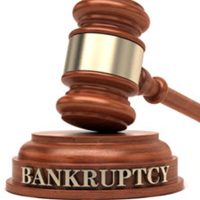4 Reasons To Choose Chapter 7 Bankruptcy

If you cannot meet your debt obligations, you may benefit from the protections provided by bankruptcy. When it comes to bankruptcy, there are different options. The two main types of consumer bankruptcy in the United States of America are Chapter 7 and Chapter 13. Whether Chapter 7 or Chapter 13 bankruptcy is the right option for you depends on several factors. Below, we discuss some of the reasons to choose Chapter 7 bankruptcy.
- You Want To Outright Eliminate Debt Rather Than Pay It Off
Chapter 7 bankruptcy, also called liquidation bankruptcy, is an option that involves the selling of non-exempt property to pay off debts. With Chapter 7 bankruptcy, any remaining qualifying debts are discharged, meaning you are no longer legally required to pay off those debts. If you want to eliminate debt outright rather than pay it off, Chapter 7 bankruptcy may be the right option for you. With Chapter 13 bankruptcy, you pay back some or all of your debts over a period of three to five years. Then, at the end of the repayment period, any remaining eligible debts covered by the plan are discharged. If your income is unreliable or you have limited income and a few assets, Chapter 7 could be beneficial. It could help you discharge most of your unsecured debts without requiring a repayment plan.
- You Want a Quick Debt Discharge
Another reason to choose Chapter 7 bankruptcy is if you want a quick debt discharge. It could take a few months after filing a Chapter 7 bankruptcy for your debts to be discharged. On the other hand, with Chapter 13 bankruptcy, it takes years of regular payments before the remaining debts can be discharged.
One of the main reasons some people elect to file a Chapter 13 case as opposed to a Chapter 7 case is because they may have non-exempt equity of an asset that they want to keep. In a Chapter 13 Plan, you can keep your non-exempt asset but have to pay the non-exempt portion over the term of a 3 to 5 year repayment Plan. If you would rather let the Chapter 7 Bankruptcy Trustee liquidate the non-exempt asset as opposed to avoid waiting 3 to 5 years of making monthly payments to retain the non-exempt asset, then a Chapter 7 may be your option for the quick discharge of your debts without undertaking a repayment plan.
- You Want To Keep Future Income
In Pennsylvania, any property or income you acquire after filing for Chapter 7 bankruptcy usually does not become part of the bankruptcy estate unless it falls under certain exceptions or conditions. For example, if you receive an insurance settlement or inheritance within six months of filing for bankruptcy, it might be considered part of the bankruptcy estate. So, if you want to keep future income, Chapter 7 bankruptcy may be the right option for you.
- You Don’t Qualify for Chapter 13 Bankruptcy
One obvious reason to choose Chapter 7 bankruptcy is if you do not qualify for Chapter 13 bankruptcy. For example, if you don’t have a reliable source of income to fund a repayment plan, you cannot file a Chapter 13 bankruptcy. Also, if you previously obtained a Chapter 7 discharge and four years haven’t passed since that discharge, you cannot file a Chapter 13 bankruptcy in Pennsylvania.
When considering whether to choose Chapter 7 bankruptcy, you need to remember some crucial things. For example, you should keep in mind that some debts cannot be discharged, such as child support, alimony, student loans (unless you can show undue hardship), criminal fines, and some taxes.
There may also be certain litigation risks that you should assess before making your final determination of which bankruptcy chapter to file. For example, a current hot topic that is being litigated is whether a debtor can file a chapter 7 bankruptcy case or must pay debts back if the debtor is projecting disposable monthly income from social security income. Some cases presently say social security is not income for bankruptcy purposes and the Means Test to determine if a debtor is eligible for a Chapter 7 case, while other cases are claiming it can be considered for a separate current disposable income test even if it not considered as income under the Means Test.
Contact an Experienced Lehighton & Carbon County Bankruptcy Attorney Today
If you need help determining whether Chapter 7 bankruptcy is the right option for you, contact our experienced Lehighton & Carbon County bankruptcy attorney at Adam R. Weaver, Esq.
